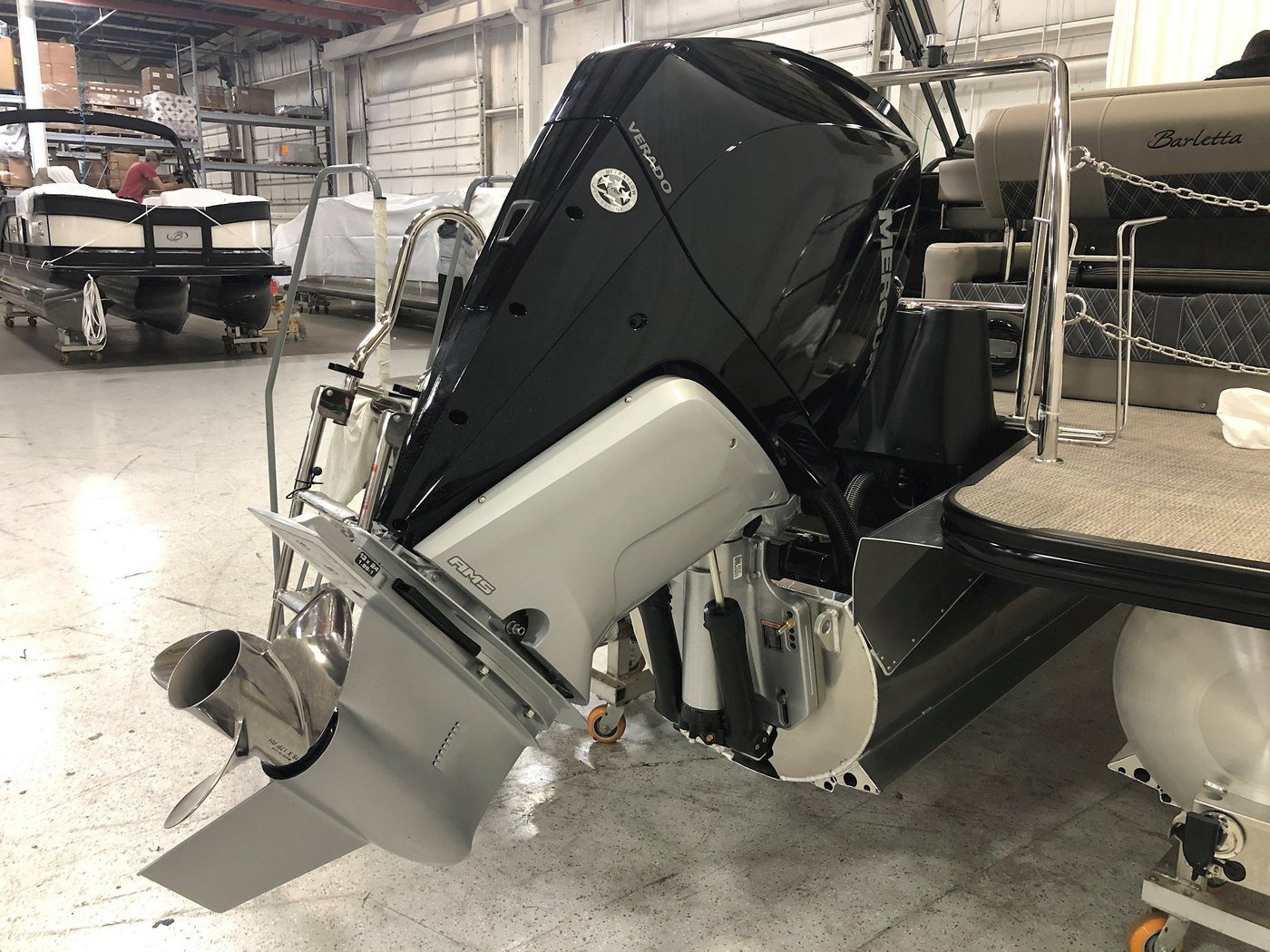How to Choose the Best Propeller for Your Boat
If you’re new to boating, you may have realized that there are so many things to learn before stepping foot on your new vessel. Learning everything there is to know about maintaining and operating the boat can be a chore in itself.
Did you choose the right layout for your needs? Do you have enough capacity for the whole crew? What safety gear have you bought, and does it comply with your local and state laws?
So many questions with so much to learn. It can become overwhelming, so it’s important to do your research ahead of getting out on the water.
Do you know what your engine’s break-in period is? How many times a year does your boat need to be serviced? Is it safe to power wash the exterior? The list goes on and on.
But for some reason, there’s a question that is rarely thought of until you’re cruising along and notice a difference in your boat’s performance:
How do you choose the right propeller for your boat? In most cases, the manufacturer or dealer you’re working with will choose the appropriate propeller based on a few key elements. But what if it’s not meeting your expectations in performance?
What if the propeller that is on the boat isn’t necessarily the best choice for your needs?
I’ve got some tips on how to choose the correct propeller so that you can make an educated decision before launching the boat.
How Does a Boat Propeller Work?
Let’s first breakdown how a boat propeller functions to better understand why it’s important to choose the right one for your boat.
Although propeller theory is straightforward, there are a few variables behind what makes it spin. A propeller displaces water and creates thrust by rotating its blades.
The angle at which those blades are placed relative to the hub is called pitch. The pitch of the propeller will dictate how far it moves with each thrust.
Pitch is calculated by the theory that if a 12 pitch propeller is moving through a solid structure, one revolution—or turn—of the propeller will move it forward 12 inches. This is what happens when a screw moves through a solid such as wood.
So, if the propeller pitch is 16 inches, it will move 16 inches. The more pitch you are trying to turn, the more torque is required from the engine.
What Determines the Type of Propeller your Boat Needs?
If you’re new to boating, you may not have expectations around what type of performance you should get out of your engine/propeller combo. That said, there are numerous variables behind which prop is right for your boat.
Propellers can make such an impact on performance that your neighbor could have the exact same boat and engine, but if the prop is different, the two boats could yield different results.
There are so many fluctuations and options that you could literally make the same exact boat faster just by adding a different propeller.
Choices that affect this change in performance are:
- Stainless steel over aluminum
- Three or four blades
- The pitch
Stainless is a stronger metal than aluminum, so this type of prop is tougher against damage. It also doesn’t flex, so it holds its shape in the water and can increase the speed depending on boat and engine type.
Aluminum is a softer and less expensive metal, so these props are usually more budget-friendly. That said, they do tend to flex, which can hinder the boat’s performance and speed.
Other factors that make a difference in how your propeller performs are:
- The boat’s weight
- How the weight on board is distributed
- The height of the motor
- How the water comes off the hull
Choosing a propeller can be subjective depending on your performance goals, but different engines and hull designs do play into selecting the best prop.
Engines in different horsepower ranges will often require different sizes from one to another, as the propeller shafts and lower units vary in size.
All that to say, if you’re trying to get the most speed possible out of your boat/engine combo, you may want to discuss with your dealer the best propeller option relative to your situation.
How to Choose the Right Propeller
Let me start by saying, I’ve been an avid boater all my life. I’ve driven numerous different types of boats and have always been pleased with the propeller that was included from the factory every time.
If you’re new to boating or don’t have a strong opinion on the type of speed and performance you’re getting out of the ride, then you might have the dealer recommend a prop or roll with what the boat manufacturer provides.
For instance, here at Barletta Boats, we try to find a middle ground prop that allows the motor to spin close to its max RPM. This way, you’re getting a propeller that is made for your boat and will achieve near-peak performance without breaking the bank.
The traditional method of selecting a propeller takes the horsepower, boat weight, and hull type into account. Then the pitch and diameter are selected that allow the engine to run at the top end of the RPM range.
Once the boat is loaded with people and gear, this method typically provides good all-around performance. Some boaters may have different performance goals such as better hole shot or faster top-end speed, which will require a change in the pitch and diameter.
You generally want to find the comfort zone for props on your specific boat. If you’re hitting the rev limiter, you’ve got too low of a pitch. Think of this as a 10-speed bike and you’re going downhill on the highest gear.
You’re doing a whole lot of pedaling but it’s not helping move the bike any faster. Then, if you don’t shift down to go back up the hill, you’ll nearly come to a stop. That concept is the same for the pitch of the propeller.
Most service technicians at your dealership will be able to discuss propeller options and how they will affect your specific boat. There is a wide range of choices and price points, so I recommend talking this through with the experts before making a decision.
How Long Does a Propeller Last?
Like with anything, if you take care of your propeller, it should last the lifetime of your boat. Props do not have an expiration date as long as they aren’t damaged from impacts with foreign objects.
This is where knowing how to trim the engine is critical. To trim the engine simply means moving the engine up and down by using the trim function typically found on the throttle.
If you’re in a shallow area, trim the engine up to avoid hitting the propeller on inanimate objects like rocks and lake debris. In deeper spots, you can trim the engine down without the threat of propeller damage.
Small nicks and dings on the blades are usually no cause for concern, but larger damages should always be inspected by your dealer and either repaired or replaced.
If you find that the boat has lost acceleration, top-end speed, and has any vibrations that are abnormal, it could be a sign that you need to take a closer look at the prop.
What’s Next?
As I mentioned above, the boat manufacturer you choose will typically offer the right propeller for your boat. If you’re looking for more speed or want to explore different performance options, talk to your dealer about shopping for different propellers.
If for some reason your boat is not performing as expected, it could be an easy fix of changing the pitch or switching out the propeller altogether. Explain what’s going on with the ride and your dealer should be able to tell if the issue is coming from the prop pretty easily.
And remember, many times there can be 2 propellers that do the same job, but look different and have different dimensions. Your neighbor may have the same boat/engine combo with a different propeller, but that doesn’t necessarily mean that you have the wrong one.
If you’re interested in changing up your propeller, talk to a dealer about the next steps for choosing the one that meets your needs.
Helpful Articles:



.png?width=658&name=BUILD%20(2).png)